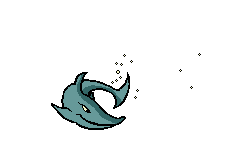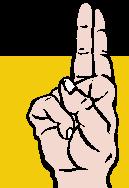"I'm a difficult student."
When it comes to pool, I am not, by any means, the perfect student. In fact, I have even been known to be “difficult.” It’s not deliberate. It just happens. As I have recently been conducting some pool clinics of my own, I have a small group of regular students that attend most weeks. One in particular, Rob, is giving me a taste of my own student-hood.
 Being an imperfect student does not make me a poor learner. In fact, I understand and retain most things very quickly. That is, after the questioning and hesitation subside. Only after I let down my guard and allow myself to trust my instructor am I able to completely absorb all the information that is presented to me.
You see… I can’t help my curiosity. Already inquisitive, having an analytical mind allows some slight paranoia to set in. This is the part where I wonder how it could be that this new information is true when I’d known it another way for so many years. “Are you sure I should use outside english here? I have always shot this with inside english.” This over-analyzing causes me to be reluctant to receiving the new information.
It’s not that I don’t trust my instructor, I just can’t help myself. For me, and many others, I need to understand why, how, and what will happen. Why do I do it this way instead of the tougher way I’ve been doing it all along? How does that happen when I hit the ball the way you tell me to? And, what exactly will happen when I shoot it the way you say? Finding an instructor with the patience to understand your need for understanding is half the battle. Discovering myself on the other side of the fence, I now understand it’s a very busy two-way street.
So, if you’re an eager student with an inquisitive mind and many questions, trust in your instructor. Believe in what they have to share with you. You don’t have to like it but don’t waste too much time. It may help to have a notebook with you to jot down some of the curious thoughts and ask them later. Try not to interrupt an explanation. You may find your answer in the end. Many times, I even answer my own question after just shooting the shot.
On the other hand, patience I always had. I developed that while teaching private violin lessons to middle-schoolers for ten years. The important thing is to make sure the point is heard. I try to make my clinics fun and interactive. I have been know to ask students to repeat their question at the end of a session as to not stray from the lesson at hand. I always make sure I answer all questions and I usually like to ask a few of my own.
I dedicate this article to Rob, one of my favorite students. He is not nearly as difficult as I am, but we’re lucky our brains work the same way. May you all find such rewarding student-teacher relationships.
Being an imperfect student does not make me a poor learner. In fact, I understand and retain most things very quickly. That is, after the questioning and hesitation subside. Only after I let down my guard and allow myself to trust my instructor am I able to completely absorb all the information that is presented to me.
You see… I can’t help my curiosity. Already inquisitive, having an analytical mind allows some slight paranoia to set in. This is the part where I wonder how it could be that this new information is true when I’d known it another way for so many years. “Are you sure I should use outside english here? I have always shot this with inside english.” This over-analyzing causes me to be reluctant to receiving the new information.
It’s not that I don’t trust my instructor, I just can’t help myself. For me, and many others, I need to understand why, how, and what will happen. Why do I do it this way instead of the tougher way I’ve been doing it all along? How does that happen when I hit the ball the way you tell me to? And, what exactly will happen when I shoot it the way you say? Finding an instructor with the patience to understand your need for understanding is half the battle. Discovering myself on the other side of the fence, I now understand it’s a very busy two-way street.
So, if you’re an eager student with an inquisitive mind and many questions, trust in your instructor. Believe in what they have to share with you. You don’t have to like it but don’t waste too much time. It may help to have a notebook with you to jot down some of the curious thoughts and ask them later. Try not to interrupt an explanation. You may find your answer in the end. Many times, I even answer my own question after just shooting the shot.
On the other hand, patience I always had. I developed that while teaching private violin lessons to middle-schoolers for ten years. The important thing is to make sure the point is heard. I try to make my clinics fun and interactive. I have been know to ask students to repeat their question at the end of a session as to not stray from the lesson at hand. I always make sure I answer all questions and I usually like to ask a few of my own.
I dedicate this article to Rob, one of my favorite students. He is not nearly as difficult as I am, but we’re lucky our brains work the same way. May you all find such rewarding student-teacher relationships.




